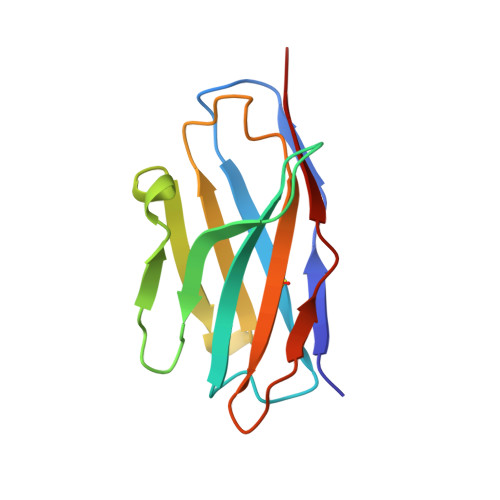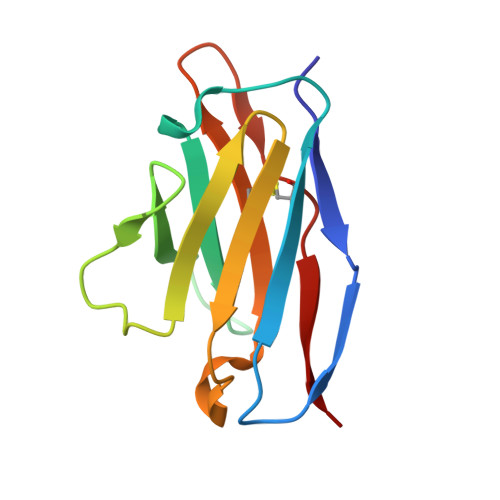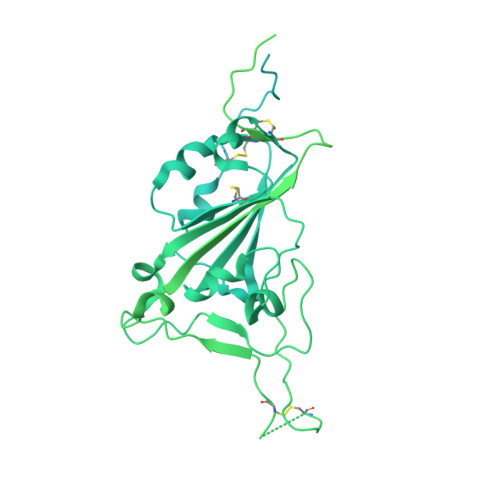Engineering SARS-CoV-2 neutralizing antibodies for increased potency and reduced viral escape pathways.
Zhao, F., Keating, C., Ozorowski, G., Shaabani, N., Francino-Urdaniz, I.M., Barman, S., Limbo, O., Burns, A., Zhou, P., Ricciardi, M.J., Woehl, J., Tran, Q., Turner, H.L., Peng, L., Huang, D., Nemazee, D., Andrabi, R., Sok, D., Teijaro, J.R., Whitehead, T.A., Ward, A.B., Burton, D.R., Jardine, J.G.(2022) iScience 25: 104914-104914
- PubMed: 35971553
- DOI: https://doi.org/10.1016/j.isci.2022.104914
- Primary Citation of Related Structures:
7RU1, 7RU2, 7RU3, 7RU4, 7RU5, 7RU8 - PubMed Abstract:
The rapid spread of SARS-CoV-2 variants poses a constant threat of escape from monoclonal antibody and vaccine countermeasures. Mutations in the ACE2 receptor binding site on the surface S protein have been shown to disrupt antibody binding and prevent viral neutralization. Here, we used a directed evolution-based approach to engineer three neutralizing antibodies for enhanced binding to S protein. The engineered antibodies showed increased in vitro functional activity in terms of neutralization potency and/or breadth of neutralization against viral variants. Deep mutational scanning revealed that higher binding affinity reduces the total number of viral escape mutations. Studies in the Syrian hamster model showed two examples where the affinity-matured antibody provided superior protection compared to the parental antibody. These data suggest that monoclonal antibodies for antiviral indications would benefit from affinity maturation to reduce viral escape pathways and appropriate affinity maturation in vaccine immunization could help resist viral variation.
Organizational Affiliation:
Department of Immunology and Microbiology, The Scripps Research Institute, La Jolla, CA 92037, USA.


















